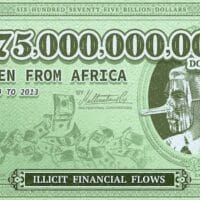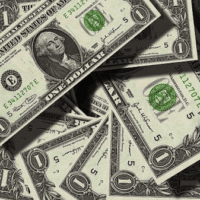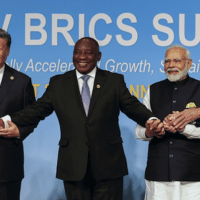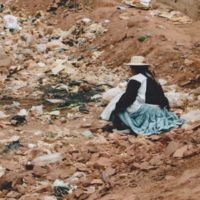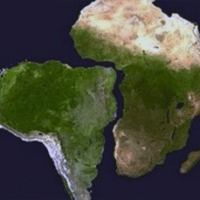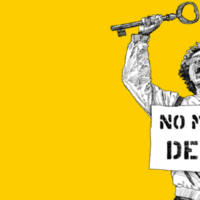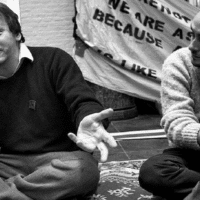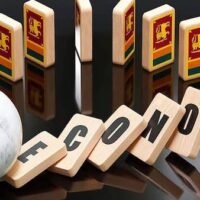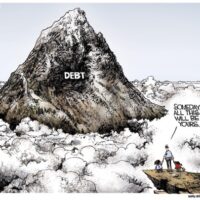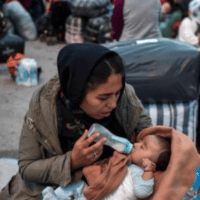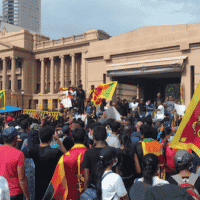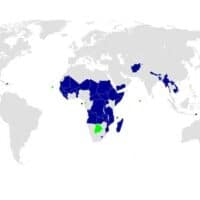-
When the Empire Chokes, the South Breathes
BRICS+ is contradictory, uneven, and fragile—but in its openings, the Global South carves space for sovereignty and struggle Multipolarity Emerges from Crisis, Not Consensus The story they sell is that “order” was built by reasoned men in sensible suits. The story we live is different. Multipolarity did not grow out of seminars or summits; it […]
-
The World in a Nutshell: An Interview with Vijay Prashad
VP: “Marxism, which is an ever-evolving field of analysis, is the most accurate critique of capitalism. As long as capitalism remains with us, Marxism must remain until another form of critique—better than Marxism—appears.”
-
A Potentially Politically Hot Summer in Puerto Rico
For today I have been asked to speak a bit about my country, Puerto Rico, and the socioeconomic crisis that is currently developing there.1 Given the time constraints, I want to provide you with a brief overview of what is being experienced there by the victims of the crisis. I want to also speak a […]
-
Two hundred years ago, France strangled the Haitian Revolution with an inhumane debt: The Seventeenth Newsletter (2025)
On a stormy August night in 1791, Dutty Boukman (1767–1791) and Cécile Fatiman (1771–1883) conducted a Vodou ceremony at Bois Caïman in northern Saint-Domingue, in the French-owned part of Hispaniola.
-
US Imperialism in Crisis: Opportunities and Challenges to a Global Community with a Shared Future
1. Introduction The predominance of US economic, political and military power in the world was established at the end of the Second World War.1 With just 6.3 percent of global population, the United States held about 50 percent of the world wealth in 1948. As the only power which had used nuclear weapons on civilian […]
-
Dilemmas of Humanity Conference discusses new framework for development in the Global South
Dozens of economists, intellectuals, and movement leaders have converged in São Paulo for the IV International Dilemmas of Humanity conference.
-
The eighth Continent is the Continent of Sleaze: The Fiftieth Newsletter (2024)
The Global North and its corporate executives have wielded the concept of ‘corruption’ to underdevelop the Global South, whose social wealth it instead injects into the Continent of Sleaze.
-
The perilous path from Western domination to de-dollarisation
One of the major problems faced by Global South countries is that they are saddled with immense debts in dollars, and Western corporations claim ownership over their resources.
-
BRICS expansion is positive–but not a coherent challenge to U.S. power
AS SIGNIFICANT as the fact of BRICS expansion are which countries are now set to join: Iran, Saudi Arabia, Egypt, the United Arab Emirates, Ethiopia and Argentina.
-
The BRICS have changed the balance of forces, but they will not by themselves change the World: The Thirty Third Newsletter (2023)
Despite the limitations of the BRICS project, it is clear that the increase in South-South trade and the development of Southern institutions (for development financing, for instance) challenges the neo-colonial system even if it does not immediately transcend it.
-
Third World external debt in the light of simple economics
INDIA and other third world countries can morally justify their being a part of G-20 alongside the imperialist powers, only if they raise common and pressing problems of the third world as a whole at G-20 meetings.
-
Africa sets the course for Latin America and multipolarity
The African continent, like the American continent, was subjected to colonization and intervention by European nations and, although the processes were different, there are common channels between the two histories, just as there are with Asia.
-
Debtors of the world, unite!
Jayati Ghosh speaks about the growing debt crisis in the global south, the IMF’s never-ending affinity for austerity and the need to confront the power of financial capital.
-
Learning from David Graeber
We ask a number of activists and academics to tell us what David Graeber’s work meant to them and the salient message it still carries today.
-
How not to deal with a debt crisis
Jayati Ghosh warns against historically disastrous approaches to the sovereign-debt crisis hitting low- and middle-income countries.
-
1980s’ redux? New context, old threats
As rich countries raise interest rates in double-edged efforts to address inflation, developing countries are struggling to cope with slowdowns, inflation, higher interest rates and other costs, plus growing debt distress.
-
A “lost decade” for developing countries?
Developed countries use 3.5% of their income to pay interest on their debt, while developing ones must use 14%, which complicates their situation.
-
Real debt trap: Sri Lanka owes vast majority to West, not China
Sri Lanka owes 81% of its external debt to US and European financial institutions and Western allies Japan and India. China owns just 10%. But Washington blames imaginary “Chinese debt traps” for the nation’s crisis, as it considers a 17th IMF structural adjustment program.
-
Bleak prospects for least developed countries
SYDNEY and KUALA LUMPUR: “The outlook for LDCs is grim”. The latest United Nations (UN) assessment of prospects for the least developed countries (LDCs) notes recent setbacks without finding any silver lining on the horizon.
-
If all refugees lived in one place, it would be the 17th most populous country in the world: The Forty-Second Newsletter (2021)
On 5 October, the United Nations Human Rights Council passed a historic, non-legally binding resolution that ‘recognises the right to a safe, clean, healthy, and sustainable environment as a human right that is important for the enjoyment of human rights’.


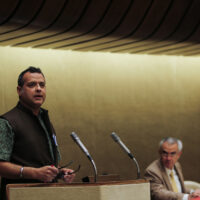

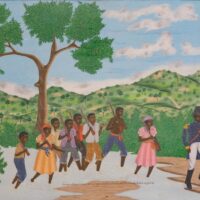
![A late 1940s Soviet poster showing a US military service member lounging on top of a German factory, smoking a cigar. The text beneath reads DER DOLLARIMPERIALISMUS [dollar imperialism].](https://mronline.org/wp-content/uploads/2025/04/Confuse_and_Control_Department_of_State_Publication_4107_1951_-_Soviet_propaganda_line_-_Dollar_imperialism_the_enemy_of_the_German_people-e1744342177232-200x200.png)

